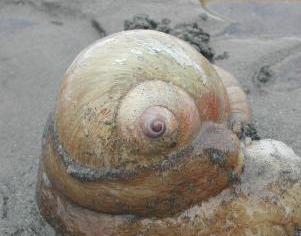This week's Newsweek features "The New Generation" of women leaders -- profiles of political, athletic and artistic women and their achievements. It's a good read, if a little canned. All the women seem to have been asked about their role models -- many of them cite role models, or wrestle the idea in general. As racecar driver Danica Patrick puts it, "I learned from people that I knew along the way, but I didn't have somebody that I wanted to be like. I wanted to be the first Danica, not the next somebody else."
I wonder about role models. Of course, girls need exposure to diverse and inspiring examples of adult womanhood -- in family, in work, in matters of personal character. But the idea of a "role model" is so limiting: As if we must choose our role, then imitate those who model it for us. As if there's one way to be a good racecar driver. Or a good Secretary of State. Or a good mother.
The "mother" role is, of course, one of the hardest to define. It overlaps with all the other categories of what it means to be a woman, to have a family, to work. Even those of us with admirable "role model" mothers are bound to struggle against fulfilling or rejecting the role as we imagine it to be. It's worth asking the question: Why is motherhood a "role" at all?
Looking lately at some studies of ancient Hebrew "word pictures" -- the original characters used in Biblical scripture that eventually involved into our own alphabet as well as modern Hebrew -- I’ve recently learned that the ancient Hebraic word for mother -- "Em" -- means "strong water." Which makes sense: The symbols for "father" (strong house) embody the structured, formal, property-bound family entity: Man's solution to the problem of rain and wind. The mother, on the other hand, is elemental and ubiquitous. Nourishing and necessary; everywhere, doing everything. And not just any water -- the strength of water, the first among the waters. A strong river. A deep wellspring. The first rain.
And "Em," while consistent with a traditional, life-giving mother role, immediately transcends the entire idea. Water is fluid and dynamic. It is vital to everything around it, but true unto itself. "Em" isn't just the spring in the center of oasis. It's not a source that might one day run dry. It is the water itself, flowing over the ground, rising to the sky in steam, and raining back to earth. We can consume water -- but while it lends itself to our nourishment, it always retains its own unique character.
We're mothers, by definition, when we have children. We mother them regardless of where we work, how large our family is, or when and what we feed them. As we lend our nature and our strength to our family, we do not disappear. And in straining to be the mother we think we "should" be -- to imitate others, to try to reproduce what we see as the productive elements of someone else's life and role -- we can lose ourselves in the process. Karenna Gore Schiff, in her Newsweek interview, tells of getting married in lawschool and pregnant soon after. She describes being one of the youngest mothers she knows, and mentions that she left the practice of law after a year, but declines to make a larger political or social point about this. She simply points out that "women in particular gain strength from operating in different spheres." And maybe this is all there is to it. A woman can be fully a mother, yet must be fully herself.
So what is the role model for water? Water doesn't need anyone to imitate, or any books to read, to show it how to be what it is. Maybe it takes an image like this to remind us how futile it is to compare ourselves to each other, or to a Motherhood Ideal. Despite our commonality, we are incomparable: The nature of water is constant, but its forms are infinitely varying. Water it always just as watery and wet as it is supposed to be. There's no "better" water or "wetter" water. It’s just water – falling from the sky, tumbling down a mountainside, washing up the beach with a rising tide.
No wonder, when mothers compete with each other, we’re left confused and frustrated. Any competition is only futile and distracting. But we can nourish and inspire each other. Perhaps (at times) we do so by "modeling" healthy behaviors and attitudes through all our challenges. But, regardless of our role models, each one of us can only be herself. Strong water, on her own course, vital and strong – washing away our roles and stereotypes. As fine as mist; as right as rain.
Wednesday, September 20, 2006
Subscribe to:
Post Comments (Atom)

1 comment:
What a beautiful and interesting post. I love when writers look at the origin of a word. I have learned something from you tonight.
Thank you.
Post a Comment